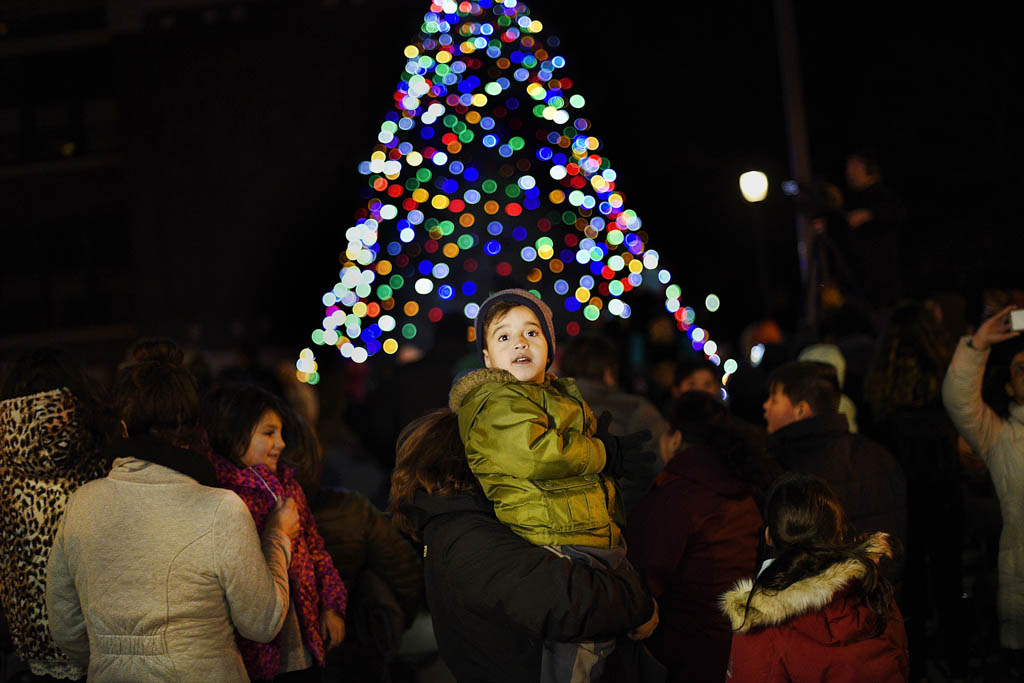The first Saturday in December was the beginning of the holiday shopping season in the small town where I lived as a little boy. In my book, “The Sojourners: Life on the American Homefront during World War II,” I describe the day and events in detail. Our small town parade was nothing like Macy’s. And our tree in the square was nothing like that in Rockefeller Center. But, when the parade ended and the tree lights and the lights across the street of our one block shopping center were turned on, to a little boy it was magical and spectacular.
That was Saturday, Dec. 6, 1941. At five minutes to eight on Sunday morning, Dec. 7, 1941, Hawaiian time, carrier aircraft of the Japanese Imperial Navy began a bombing attack on our fleet at Pearl Harbor. The United States was at war and the Christmas lights would not come on again.
The effects of that Sunday would soon make us immigrants in our own country. Along with many others across this country we had to move to do our share for our national defense. It was probably the greatest mobilization of any country in the world and we were smack in the middle of it. We ended up in Elizabeth. Most of my family settled in the same area, which was good since we could reach them as the gasoline shortage kept the cars off the road.
Christmas 1942 wasn’t as spectacular as those of the past. We were living under “blackout” conditions. No outside lighting was permitted and lighted trees had to be kept away from windows.
We all gathered at my grandparents’ house for Christmas dinner. The number of guests was smaller this year because many were away tending to the business of our country. It was customary for the ladies to clear the dinner table after the meal and get it ready for dessert. Meanwhile, the men retired to the parlor to talk, smoke or pass the jug of “corn” around. I was looking out the front window when I saw a taxi cab pull up in front of the house. Three men in dark, heavy clothing got out and took three big sea bags from the taxi trunk. Two men were tall and one was extremely short. As they came up the walk I could recognize my mother’s cousins, George and Hugh. The third small man was unknown to me. George and Hugh were seaman in the Merchant Marines. For the past few years they had been in convoys traveling in the North Atlantic to bring materials to England and Russia.
No doubt they were hungry for my grandmother’s cooking. Three places were immediately set and the men sat down for a real down home roast pork dinner. The third little man was a Jewish furrier from Russia that they stowed away on their ship. He wanted to get to Canada out of the reach of the Nazis. George and Hugh figured my grandfather could do that.
After eating, Mr. Selman, the Jewish furrier, was excited by our Christmas tree. He took a piece of Russian paper money from his pocket and folded it in a fan like shape. By hand gestures he signaled to me that he wanted to attach it to the tree. I stood by as he tried to get it attached. I guess he still had his sea legs; in his efforts he lost his balance and he and the Christmas tree went to the floor. The man was upset and shaking. He thought he destroyed a religious icon. I picked up the tree and my grandfather gave him a sip from the jug. I got a piece of string and tied his Russian money to the tree. He then understood that he wasn’t going to get arrested or punished. He was part of our Christmas.
My grandfather called a Jewish man he knew. Soon that man and another man, who spoke Russian, came to the house. They spoke to Mr. Selman as we all had pie and ice cream. The Jewish community had a system in place to handle situations like Mr. Selman’s. The little man now had a smile from ear to ear; he knew on this Christmas Day, he was safe in the Promised Land. That was one for our side.
Richard Pender is the senior vice commander of American Legion Post 459 in North Brunswick. He writes the occasional historical column for Newspaper Media Group. He can be reached at [email protected].

